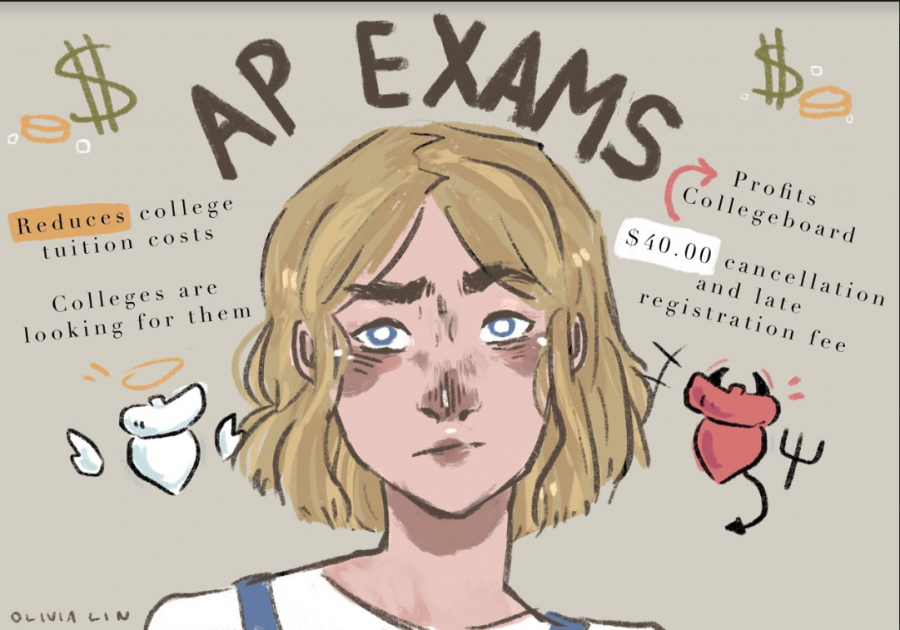Opinion: Why Fall Registration for AP Exams is Bad for Students and Good for the College Board
There’s an old saying that you shouldn’t bite the hand that feeds you college credit, so I guess it would be wisest to shut my mouth right now, close my laptop, and return to the mountains of APUSH homework that await me. But journalism is all about telling the truth, and in the name of Ida Tarbell and Ida B. Wells, I shall do so.
The College Board is a profit-hungry business.
This year is a landmark one for the organization, which for the first time moved the AP exam registration up to November as opposed to March. For many students, this decision has reshaped their financial strategies for taking AP exams, forcing them to choose between committing early to a test and seeing it through no matter what, or paying an extra fee if they change their mind.
Thankfully, Morris Hills does not force students to take the exam for the AP class in which they’re enrolled. Even so, since AP tests count for college credit- which means saving money- many students opt to take it. The stakes are high, so when the College Board switched to fall registration, it affected many of us.
There are a lot of points were a student could, theoretically, say “no”: no to taking an AP class, no to a prestigious academic program that requires they take the exam, no to a college that considers taking AP exams a measure of a candidate’s worth. Because we can opt out in this way, the College Board is not technically forcing our hand. How can we complain about the deadlines and costs when AP exams are optional?
But as many Hills students know, it’s become increasingly harder to stand out in the cutthroat application process. Students looking at competitive colleges and down the line to graduate school know that AP classes have become less of an option and more of an expectation. And with college tuitions breaking the bank, the College Board’s credit offerings seem like a lifeboat. A leaky, manipulative lifeboat, but a lifeboat nonetheless.
It’s important to acknowledge that financial aid is offered to students, both by the College Board and within the school district, which can significantly lower the cost of taking the exam. Based solely on this, the organization doesn’t seem all that bad. So it’s baffling that, if they really do have our interests at heart, they would move the deadline up to November. Their reasoning is somewhat sound: if students pay for it, they’ll be more likely to take it. The Board even references stats from the pilot fall registration program in 2017-2018, where they “saw an increase in scores of 3 or higher across multiple groups.”
This is fair logic, but a perfect example of how big picture success fails to recognize the everyman’s struggle. The reality of fall registration is stressful. As any AP student can tell you, less than three months may not be enough to know whether you show the potential to score well, a key factor in making such a financial commitment. From this point of view, the College Board’s statistics feel less like reasoning and more like justification for doing something not quite right. They can provide as many numbers as they want, but that does not change the fundamental truth that the College Board makes more money through fall registration. If you do not make an early commitment and stick with it, you’re paying forty more dollars as a late registration fee or cancellation fee. Even if the College Board needs the exorbitant exam costs to stay afloat, the fall registration system feels like it’s leaning away from necessity towards profit.
Here’s the crux of it: if the College Board is truly an organization made for students, to help students, then they should listen to what the students want. Should we protest fall registration and the College Board ignores us, maybe it’s a sign that the organization isn’t looking out for students after all.


